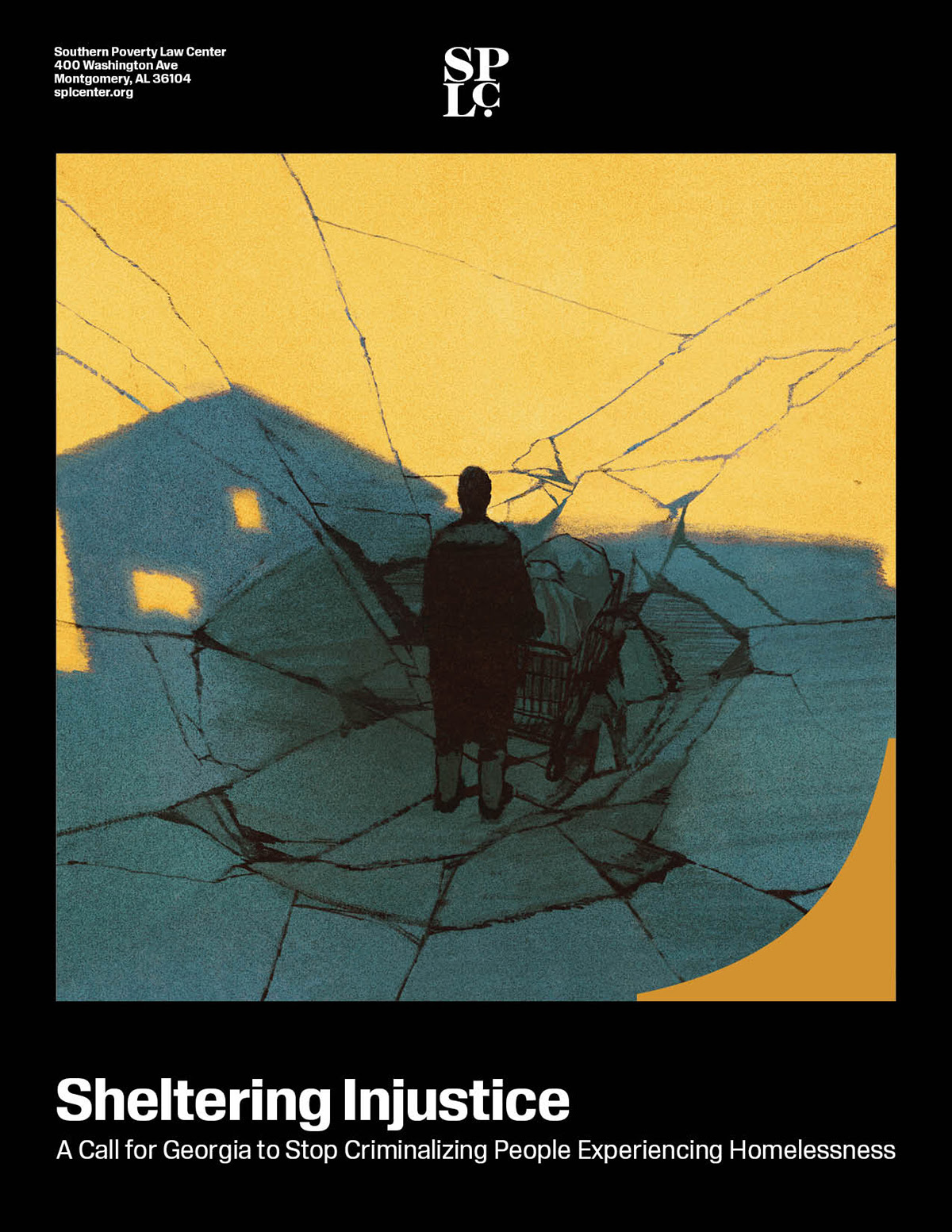A Call for Georgia to Stop Criminalizing People Experiencing Homelessness
Access to safe, stable housing is a human right. In the United States, however, the deprivation of this right leads to inequitable housing access. As a result, in addition to people with disabilities and members of the LGBTQ+ community, people of color — especially Black people — are more likely to experience homelessness or be at risk of homelessness. Compounding this issue, people of color and people with disabilities are also overrepresented in the criminal legal system because of mass incarceration. This intersection of housing inaccessibility and criminalization has resulted in the pernicious practice of the criminalization of people experiencing homelessness, a pressing issue across the country — including in the Deep South. In 2023, for example, Georgia enacted a law that forces cities and other localities to enforce bans on public camping, putting thousands of Georgians living unsheltered at risk of arrest for performing basic survival activities like rest, eating and asking for help.
In the Video: The SPLC report Sheltering Injustice: A Call for Georgia to Stop Criminalizing People Experiencing Homelessness includes the stories of people living unhoused in Georgia.
During the 2022 legislative session, the Georgia Legislature created the Senate Study Committee on Unsheltered Homelessness to develop “specific recommendations on the enforcement of bans on camping and sleeping in public spaces, new types of state and local contracts with homeless nonprofit organizations, and the necessity for new state laws dealing with homelessness.” While the committee was supposed to undertake a comprehensive look at the issue of homelessness, it declined to address the issue of the criminalization of people experiencing homelessness. This report, Sheltering Injustice: A Call for Georgia to Stop Criminalizing People Experiencing Homelessness fills the gap left by the committee’s decision by outlining how Georgia’s current criminalization of those experiencing homelessness has a lasting harmful effect – particularly on the state’s Black communities and other communities of color.
The report features the ongoing harm criminalization has on Georgians across the state by centering the experiences of people experiencing homelessness. Specifically, the report features the stories of real people who are affected by criminalization measures, not just statistics. In addition, Sheltering Injustice explores the historic roots of this harmful practice, stemming from slavery and the attempts to control newly freed Black people.
But all hope is not lost. Sheltering Injustice spells out steps Georgia can take to stop ongoing harm and presents alternatives to criminalization that would allow people experiencing homelessness to start on a path toward housing and financial stability. Most importantly, these solutions are people-driven. Sheltering Injustice highlights the personal stories of people experiencing homelessness in their own words.
“Weaponizing public policy and the criminal legal system against people experiencing homelessness is a pressing racial and disability justice issue,” says Gina Azito Thompson, SPLC policy analyst and the report’s author. “There is a better, proven way to combat homelessness by helping people access housing and other resources they need to become self-sufficient. People should be met with resources and housing, not punishment and law enforcement.”
The SPLC encourages all readers to use Sheltering Injustice as a resource to catalyze change for people experiencing homelessness not only in Georgia, but across the Deep South and beyond.
READ THE REPORT BY CLICKING ON THE IMAGE BELOW

No comments:
Post a Comment